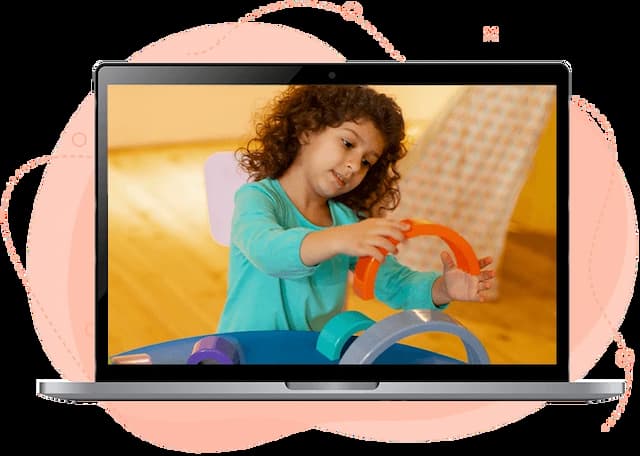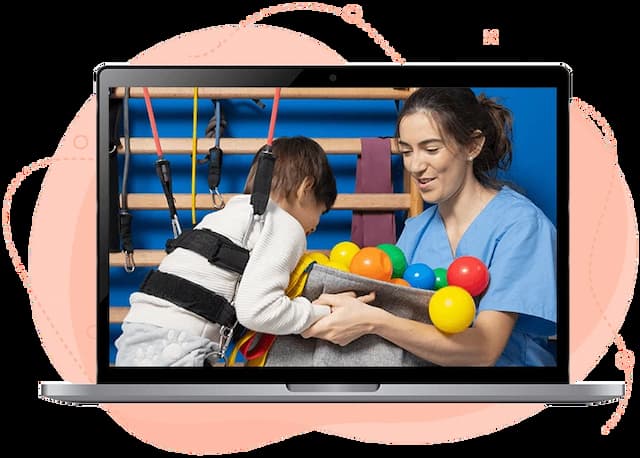

Akankhya Praharaj
Occupational therapist
0 Yrs 0 Mos of experience
Mot in pediatric occupational therapy
Languages: Oriya, Bengali, Hindi, English,
Watching a child makes it obvious that the development of his mind comes through his movements
Overview
Im an occupational therapist and i have experience working with kids with delay in there milestones and im keen on helping them reach their goals and be independent physically and cognitively
My Services

Areas of Expertise
School system OT:
Focus on academics, play of leisure, social participation and self care-skills and transitional work skills.
TPromote positive behaviours.
Prevocational/ vocational participation.
Promote social skills
Support the needs of students with significant challenges.
Provide assistive technology.
Help identify long-term goals.
Plan relevant instructional activities for ongoing implementation in the classroom
To offer curricular modifications to support diverse learning abilities
Low vision:
Enhance use of optical devices and assistive technology.
Teach new skills.
Feeding/ eating and swallowing:
Facilitate the activities of feeding, eating and swallowing.
Ensure appropriate setup and equipment.
Ensure performance of oral, pharyngeal and oesophageal phases of swallow.
Holistically address the physical, psychosocial and cultural factors associated with feeding/ eating and swallowing.
Driving of community mobility:
Teach use of adaptive equipment.
Provide drive-specific rehabilitation.
Training in a method of transportation.
Facilitate traffic safety programs.
Focus on screening, readiness and ability to drive, ability to cross the street, negotiate curbs and sidewalks and safety.
Address time management, quick use of extremities, regulation of sensory input, coordination, manage impulse control, handling and emergency.
OT for mental health:
Recognise and respond to acute changes in mental health states.
Promote social-emotional learning, regulate over and under active sensory systems.
Address barriers and build on existing abilities.
Help to identify and implement healthy habits and routines.
Support the identification of personal values, needs and goals, realistic decision making.
Support the creation and use of a wellness recovery action plan in group or individual sessions.
Teach and support use of coping strategies.
Increase awareness of community based resources.
Provide information on how to monitor physical health concerns.
Geriatric OT
Frame regular and suitable exercises.
Help in mobility depending on bodily conditions.
Maintain flexibility and mobility of joints.
Reduce stiffness and slow down osteoporosis.
Interventions are designed based on areas emphasized by healthy lifestyles and social support.
Help engage in regular physical activity.
Help incorporate person centred self management strategies into intervention with elderly to enhance participation.
Provide adaptation training to the individuals so as to help them in addressing daily function and independence.
Focus on mutual health and cognitive and perceptual factors, in addition to physical symptoms to reduce non- compliance issues and address compensatory techniques.
Client centred evaluation, intervention, and task modification to facilitate progress toward performance based goals
Evaluate the need for splints and orthosis and positioning devices to preserve joint integrity and protect skin.
Train families and caregivers to assist with Rom exercises, safe transfers and mobility and skin checks and engage in memory enhancing activities.
Train patients who are unable to verbalise basic needs in how to use mobile devices and tabs to communicate.
Teach stress management techniques and coping skills.
Develop protocols and facilitate therapy groups to address goal setting, community re-entry strategies, sleep hygiene, prevocational skills, body image issues and ADL’s.
OT for Autism:
Conduct standardized assessment tests.
Evaluate current level of performance
Parent report and rating scales
Focus on sensory integration therapy
Provides neural developmental therapy
Address ADL’s, IADL, adaptive behaviour, rest and sleep.
Sharing helpful resources to the parent and teacher
Paediatric OT
Evaluate Sensorimotor, cognitive and adaptive skills and facilitate progress towards developmental milestones.
Collaborate with and train families to reinforce therapeutic skill acquisition.
Develop and implement an intervention plan based on the child’s need to participate in various child appropriate occupations and environments (school and playgrounds), including socializing with other children.
Evaluate children with different needs and help them to develop skills and perform purposeful activities that make-up everyday life.
To incorporate play therapy into the interventions to help motivate children.
Assess the components of the areas involved in the performance of activities of daily living and provides therapy
Sensory: the child’s ability to interpret and organise information from the senses about their body and environment
Motor: the child’s tone and strength, patterns of movement, posture, GMF and FMF and hand eye coordination.
Cognitive: the child’s around level of attention skills, memory, initiation and planning of activity, problem solving and safety awareness.
Psycho-social: the child’s self esteem, motivation and social interaction.
Master basic life skills.
Provide special equipment to build independence (orthosis, communication aids, splints and positioning devices).
Analyses, evaluate and provide support children who have sensory processing disorders, trauma, learning problems, autism, juvenile RA, mental health and behavioural problems, orthopaedic injuries, developmental delays, ADHD, down’s syndrome, burns, spina bifida, multiple sclerosis, cerebral palsy and chronic illness, language problems.
